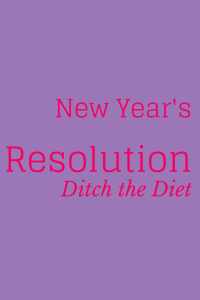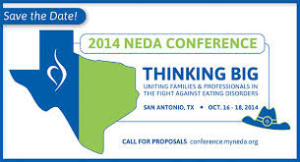 Yes, that is right. Set a New Year’s Resolution NOT DIET in 2015 (or really ever again).
Yes, that is right. Set a New Year’s Resolution NOT DIET in 2015 (or really ever again).
Why you ask? I will give you five good reasons:
1. Dieting doesn’t work for long-term weight regulation. Scientists don’t have any good data that shows dieting works consistently in reducing weight, long-term, in populations of people.
2. Dieting can lead to weight gain. Dieting can produce short-term weight loss, but more often than not, it leads to regaining of lost weight and sometimes even more. Some clinicians argue that the losing/gaining weight cycle (sometimes referred to as weight cycling) is what causes health problems in overweight and obese individuals (Versus elevated body weight.).
3. Dieting is a known risk factor for developing an eating disorder. The causes of eating disorders are very complex and researchers have identified several risk factors for developing an eating disorder which include dieting, temperament, gender, etc. Not to say that all people who diet will develop an eating disorder, but it may increase your risk.
4. Dieting can make us feel a little crazy. At the start of a diet there is promise that the diet will bring control over eating (and sometimes our lives). But, ever notice when you are dieting that you spend more time thinking about food? Or that when your dieting you begin to feel very uncomfortable around food? Maybe you avoid certain social situations because you are dieting. I would argue that dieting leads to more preoccupation with food, weight/shape which leaves less head space to think about other things.
Additionally, when we aren’t able to follow our diet (Not because of laziness or lack of will power by the way, see 1#.) it can lead to an increase in feelings of shame and failure. These feelings can often drive us further from self-care and in some people it can lead to OVEREATING.
To learn more about the psychological effects of food restriction click here.
5. Dieting doesn’t equal improved health. See #1, #2, #3, #4
In my next few posts I will discuss further reasons why dieting doesn’t work and what one might do as an alternative to dieting.
 Whether you are a chronic dieter or a newbie at dieting—you know diets are tough to “stay on”.
Whether you are a chronic dieter or a newbie at dieting—you know diets are tough to “stay on”.

